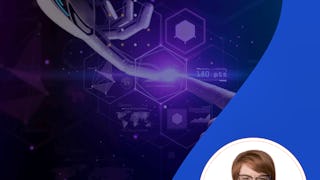The course will provide an overview of philosophical questions about intellectual autonomy, our ability to govern ourselves as thinkers. “Thinking for yourself” is a traditional educational emphasis; but recent history has also dramatized the risks of “doing your own research” instead of trusting experts on topics from climate change to vaccine risks to election outcomes. Meanwhile, the rise of AI tools like ChatGPT illustrates the possibility of “outsourcing” some of our thinking to technology; and problems of misinformation press us to consider how individuals and governments can permissibly shape people’s intellectual behavior. This course brings these topics into perspective by considering how the value of intellectual autonomy relates to our dependence on other people, labor-saving tools, and healthy informational environments.


您将学到什么
Examine the ethical dimensions of governmental nudges and other ways of managing the intellectual environment
Acquire intellectual skills applicable in daily life when confronted with testimony, options for cognitive offloading, and persuasive techniques
Develop a deeper understanding of intellectual autonomy and its value, as well as the benefits and risks of intellectual reliance on others.
您将获得的技能
要了解的详细信息

添加到您的领英档案
9 项作业
了解顶级公司的员工如何掌握热门技能

该课程共有4个模块
An introduction to the idea of intellectual autonomy and its possible benefits and drawbacks, along with an overview of the remaining course modules.
涵盖的内容
3个视频3篇阅读材料2个作业3个讨论话题
An overview of the epistemology of testimony—i.e. of believing what other people tell you—as a site for negotiating intellectual autonomy. Special attention is given to problems of "expert" testimony.
涵盖的内容
4个视频4篇阅读材料2个作业3个讨论话题
This section explores the relation between intellectual autonomy and strategies for cognitive offloading.
涵盖的内容
3个视频5篇阅读材料3个作业2个讨论话题
In this section the focus moves from how we can value and preserve our own intellectual autonomy to how intellectual autonomy is respected when we are persuaded.
涵盖的内容
4个视频6篇阅读材料2个作业3个讨论话题
位教师

从 Philosophy 浏览更多内容
 状态:免费试用
状态:免费试用University of Michigan
 状态:预览
状态:预览University of California, Santa Cruz
 状态:免费试用
状态:免费试用Coursera Instructor Network
 状态:预览
状态:预览The University of Edinburgh
人们为什么选择 Coursera 来帮助自己实现职业发展




常见问题
To access the course materials, assignments and to earn a Certificate, you will need to purchase the Certificate experience when you enroll in a course. You can try a Free Trial instead, or apply for Financial Aid. The course may offer 'Full Course, No Certificate' instead. This option lets you see all course materials, submit required assessments, and get a final grade. This also means that you will not be able to purchase a Certificate experience.
When you purchase a Certificate you get access to all course materials, including graded assignments. Upon completing the course, your electronic Certificate will be added to your Accomplishments page - from there, you can print your Certificate or add it to your LinkedIn profile.
Yes. In select learning programs, you can apply for financial aid or a scholarship if you can’t afford the enrollment fee. If fin aid or scholarship is available for your learning program selection, you’ll find a link to apply on the description page.
更多问题
提供助学金,

 中
中

